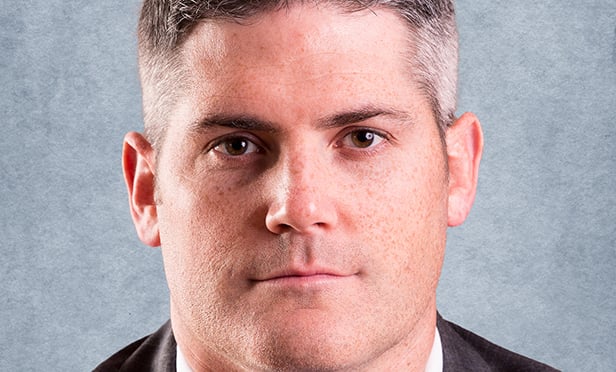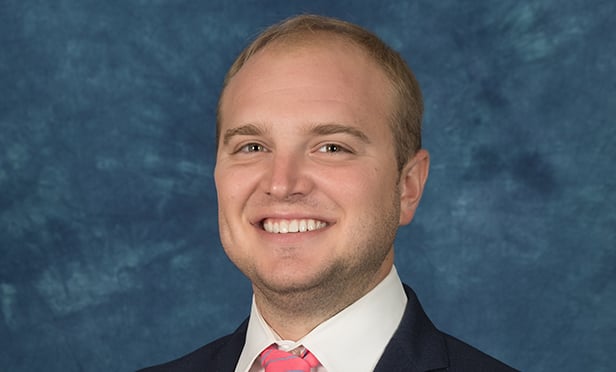GLENDALE, CA—It's January 1929. More than 2,500 masons and their guests are flocking into the first-floor auditorium of the Masonic Temple to attend a ball celebrating the opening of the nine-story white tower, the tallest building in Glendale. Eighty-seven years later, it is men and women—smart phones in hand—who are riding the building's elevator to an open, glass-dominated office loft.
The Masonic Temple has seen several incarnations, from gathering place for Mason fraternity members, to housing the Fred Astaire dance studio in the 1950s, the Sopwith Camel nightclub in the seventies, a cinema and a classical repertory theater called "A Noise Within" to being the newest office in L.A. County for real estate giant CBRE Group Inc.
The demand from companies for repurposed and historic buildings has been soaring in recent years. While the residential sector embraced this trend early in places like New York's Soho where abandoned warehouses have turned into pricey lofts, and was adopted by boutique hotel owners like Ian Schrager, it has since moved into the office segment.
In many instances, employers are following the workforce to urban centers and away from traditional office parks. Millennials—which now represent the largest living population segment—have been flocking to hip downtown neighborhoods to live and play—areas that had lost their popularity as baby boomers moved to the suburbs.
Examples of this creative office boom span the globe. In Los Angeles, local developer Ratkovich Co. renovated the hangar where Howard Hughes' legendary Spruce Goose plane was built. The reimagined industrial space was quickly taken up by media and technology companies. The Pac Mutual property, a 1908-built Beaux Arts-style building owned by Ivanhoe Cambridge and Callahan Capital Properties, is now home to such tenants as online clothing retailer Nasty Gal. CBRE is currently marketing the revamped Ford Motor factory, which was originally built to manufacture Ford Model T automobiles, in the Arts District to possible tenants. Interest for the converted space, owned by San Francisco-based Shorenstein Properties, has dominantly been from creative, entertainment and technology companies but also from a more traditional consulting client.
The resurgence in popularity of historic and repurposed buildings is in part driven by employers' desire to be considered forward-thinking front-runners in up-and-coming neighborhoods. Spruce Goose sits in Playa Vista, an area that has benefited from the increasing footprint of the Silicon Beach phenomenon. Downtown is being buoyed as big companies such as CBRE and architectural firm Gensler have moved in, encouraging a number of other businesses to venture into this long-neglected part of Los Angeles.
Equally, the area around the Masonic Temple in Glendale has blossomed since Caruso Affiliated opened the Americana at Brand outdoor shopping center across the street. It attracts thousands of people to the area each day and has resulted in the opening of such retailers as Apple and Nordstrom and restaurants such as Bourbon Steak by Michael Mina.
Whether it is in Los Angeles, New York or London, companies are eager to differentiate themselves from the ever-increasing competition to help attract and retain top talent. Cool interiors featuring eclectic art, concrete floors and exposed pipes is one thing, but to convey your company has an edge through a unique facade that stands out in a sea of office towers takes this concept to a whole other level. Historic buildings can also provide a sense of connectedness to times past for companies operating in today's fast-paced world.
Maybe Doug Marlow, EVP of CBRE's L.A. North region, sums it up best: "The demand for this type of building is on fire. Companies are increasingly looking to present their identity through the buildings they occupy. It's an extension of what we've been already seeing in office interiors for years. It started with ping pong tables and exposed brick and is now moving to the buildings themselves. CBRE is aiming for the same goal with our new office in Glendale as well as in other markets. The combination of structural elegance and historic relevance of the Masonic Temple will be a phenomenal calling card for the company."
David Josker is the managing director of CBRE's Los Angeles North region. The views expressed within are the author's own.
Want to continue reading?
Become a Free ALM Digital Reader.
Once you are an ALM Digital Member, you’ll receive:
- Breaking commercial real estate news and analysis, on-site and via our newsletters and custom alerts
- Educational webcasts, white papers, and ebooks from industry thought leaders
- Critical coverage of the property casualty insurance and financial advisory markets on our other ALM sites, PropertyCasualty360 and ThinkAdvisor
Already have an account? Sign In Now
*May exclude premium content© 2024 ALM Global, LLC, All Rights Reserved. Request academic re-use from www.copyright.com. All other uses, submit a request to [email protected]. For more information visit Asset & Logo Licensing.








